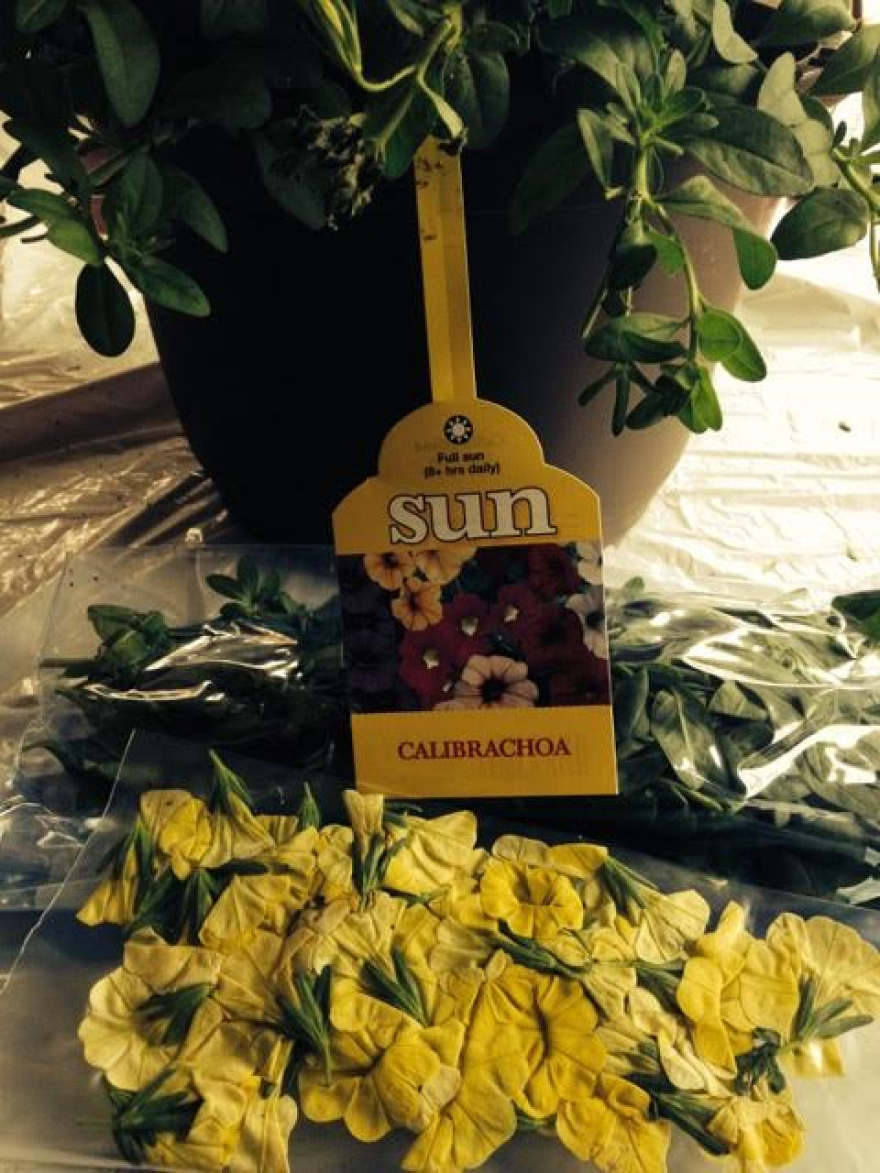Many gardeners know that bees are in trouble, and they want to help. Sales of so-called "bee-friendly" flowering plants are on the rise.
There's just one problem, says Melissa Cooper Sargent of the Ecology Center, and it's a big one.
Sargent says it's common practice for nurseries around the country to treat the seeds of the plants, or the plants themselves, with pesticides called neonicotinoids, that are highly toxic to bees.
"We feel like we're doing a good thing, only to come and find out, these plants have been pretreated with neonicotinoids." says Sargent. "We're saying, 'Welcome! Come to my yard, have some pollen and nectar and refuel.' But then we end up poisoning them instead."
Pressure from Sargent's group and others has convinced Lowe's and Home Depot to commit to phasing out the use of neonicotinoids in bee-friendly plants, and a new study shows the two chains are making progress on the commitment.
In 2013 and 2014, about half the plants the groups bought from Home Depot and Lowe's tested positive for the pesticides. This year, only 23% tested positive.
Sargent says it's time for other chains, including True Value, Ace Hardware, and Walmart, to make the same commitment.
She says there are other things gardeners can do to help the bees.
One of the best ways is to stop using products that are designed to kill aphids and grubs but also kill bees. Most of those products on the shelves of stores like Home Depot and Lowe's contain - you guessed it - neonicotinoids.
Sargent says the two chains plan to phase out those products, too, but so far they are still widely available.
"There are other ways to get rid of those pests," says Sargent. For aphids, there is a natural product called Milky Spore (you have to apply it at the right time of year, or it won't work, she notes.)
Another, more holistic approach is to stop using chemical pesticides and fertilizers altogether, which deplete the soil of organic nutrients and beneficial organisms. An organic garden tends to produce healthier plants, which are naturally more resistant to bugs, she says.
And instead of viewing dandelions and clover in the grass as the enemy, start thinking of them as friends of the bees, Sargent says.
Those are the first flowering plants in the spring, and if the bees have had a hard winter, they will gravitate to the dandelions and clover for nourishment until other flowering plants appear.
Sargent acknowledges the bigger problem is the widespread use of neonicotinoids by the agriculture industry. "It's not sustainable," she says.









